Shikoku University Junior College is part of Shikoku University and is located in Tokushima City, Tokushima Prefecture, Japan. The Junior College was established in 1966 to provide two-year higher education, focusing on cultivating students' professional knowledge and practical skills. The following is a detailed introduction to Shikoku University Junior College, including its history, subject settings, educational characteristics, campus facilities and other information.
Basic Information
Name: Shikoku University Junior College (Japanese: 四國大學短學部、しこくだいがくたんきだいがくぶ)
English Name: Shikoku University Junior College
Abbreviation: Shikoku Junior College
Address: Ojin-cho Furukawa, Tokushima City, Tokushima Prefecture
Establishment time: 1966
Type: Private Junior College
Historical Evolution
1925: The educational institution that was the predecessor of Shikoku University was established.
1966: Shikoku University was officially established and the Junior College Department was established.
1970s to 1980s: Gradually expand the scope of education, add new subjects and majors, and enhance scientific research capabilities.
1990s to present: Further strengthen international education, establish cooperative relations with universities in many countries, and enhance academic influence.
Subject settings
Shikoku University Junior College has the following subjects, mainly focusing on business communication, life sciences, early childhood education and music. The specific subject settings are as follows:
Business Communication Department
Business Communication Course: Cultivate professionals with business communication and communication skills.
Life Science Department
Life Science Course: Cultivate professionals with life science knowledge and practical ability.
Early Childhood Education and Care Department
Early Childhood Education and Care Course: Cultivate professionals with early childhood education and care knowledge.
Music Department
Music Course: Cultivate professionals with music knowledge and performance ability.
Educational Features
Practical Education: Emphasize the combination of theory and practice, provide rich internships and practical activities, and help students accumulate practical work experience.
International Education: Actively promote international education, establish cooperative relations with universities in many countries, and provide overseas exchange programs.
Professional training: Focus on students' professional skills training, and cultivate professionals with solid theoretical foundation and practical ability.
Career support: There is a special career guidance center to provide services such as career planning, employment consultation and internship recommendation.
Campus facilities
Library: It has rich book resources and a modern reading environment.
Laboratory: Equipped with advanced experimental equipment to support scientific research and practical teaching.
Sports facilities: Including gymnasiums, sports fields, etc., to promote students' physical and mental health.
Student dormitories: Provide comfortable accommodation environment to facilitate students' life and study.
Research Center
Business Communication Research Center: Research various issues in the field of business communication and provide support for corporate management and marketing.
Life Science Research Center: Research various issues in the field of life sciences and provide support for family and social welfare.
Early Childhood Education Research Center: Research various issues in the field of early childhood education and provide support for child development and care.
Music Research Center: Research various issues in the field of music and provide support for music education and performance.
Student activities
Club activities: There are many student clubs covering academic, cultural, sports and other fields.
Volunteer activities: Encourage students to participate in community service and social welfare activities to cultivate a sense of social responsibility.
Admission requirements
Entrance examination: usually includes written test and interview. Please refer to the school's official website for specific requirements and procedures.
International students: International students are accepted, and they must meet language proficiency and other relevant requirements.
Contact information
Tel: +81-88-661-1111
Fax: +81-88-661-1112
Email: info@shikoku-u.ac.jp
School motto
Spirit of the school: To cultivate talents with high professionalism and practical ability, and contribute to the development and progress of society.
Educational philosophy: Focus on the cultivation of comprehensive quality and professional knowledge, and strive to cultivate talents with social responsibility and leadership.
Featured courses
Business Communication Department: A special "Business Communication Course" is set up to cultivate students' business communication and communication skills.
Life Science Department: Provides "Life Science Course" to help students master life science knowledge and practical skills.
Early Childhood Education and Care Department: Provides "Early Childhood Education and Care Course" to help students master early childhood education and care knowledge.
Music Department: Provides "Music Course" to help students master music knowledge and performance skills.
Employment situation
Employment rate: The employment rate of Shikoku University Junior College graduates is high, and many graduates have found satisfactory jobs in enterprises, educational institutions, medical institutions and other fields.
Notes
Reputation: Shikoku University Junior College enjoys a good reputation in Tokushima Prefecture and throughout Japan, especially in the fields of business communication, life sciences, early childhood education and music.
Continuing education: Graduates can choose to continue their studies at a four-year university or other higher education institutions, or they can directly enter the workplace.
The above is a basic introduction to Shikoku University Junior College. If you have more specific questions or need detailed information, it is recommended to visit the school's official website or contact the relevant department of the school directly.
-
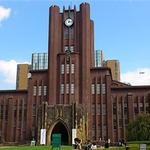
The University of Tokyo
-
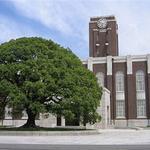
Kyoto University
-
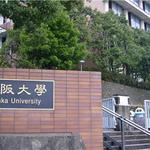
Osaka University
-
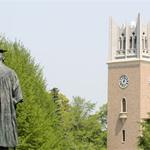
Waseda University
-
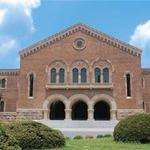
Hitotsubashi University
-
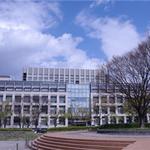
Nagoya University
-
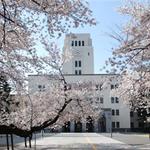
Tokyo Institute of Technology
-
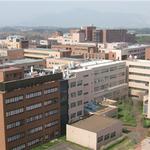
University of Tsukuba
-
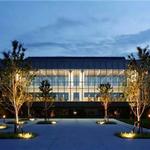
Keio University
-
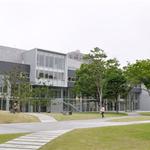
Tohoku University
-

Mesoamerican University
-

Istmo University
-

Mariano Galvez University of Guatemala
-

Regional University of Guatemala
-

Galileo University
-

Francisco Marroquín University
-

Rafael Landívar University
-

University of the Valley of Guatemala
-

University of San Carlos of Guatemala
-

Technological Institute of Tlaxcala Plateau
-

Golfo University
-

Technological University of South Sonora
-

Technological University of Huejotzingo
-

Tizimín Institute of Technology
-

Chilpancingo Institute of Technology

